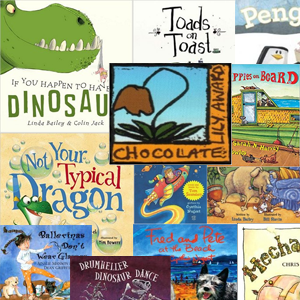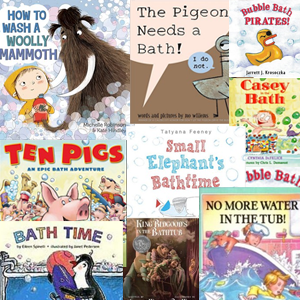Story. The importance of each individual’s story had been on my mind when I attended The Shenandoah Children’s Literature Festival (Shenandoah University in Winchester, VA). Needless to say, I was bowled over when author Meg Medina began her presentation talking about the importance of story from the viewpoint of a Latina author. She began speaking with fervor, grace, and eloquence about “Story as Identity; Story as Culture; Story as Community.”
“Story as Identity” was her springboard for expressing the inner workings of individuals and the “micro family” as part of the larger Latino family. Each person being defined by his/her place in the family of origin as well as part of the family of people in similar situations, with similar feelings, longings, hopes, disappointments, failures, and successes. These ideas are fodder for her own writings as well as observations to be discussed as part of an overall approach to the growing body of literature for and about Latinos.

“Story as Culture” opened opportunities to express the cultural realities that migration as a culture in itself imposes on many people. Understanding the misconceptions and “hot opinions” on issues (e.g. “Social Services are stealers.”) that immigrants bring with them and face upon arrival goes a long way toward understanding the people themselves. Through voice, style, and topic Latino writers can convey in their stories such things as the political realities that force people to relocate. The decision to leave one’s native country comes only after desperation has destroyed all hope of a better future in one’s own home. The mere possibility of a better future forces desperate actions upon people, who under more normal circumstances would not take such great risks with their families’ lives. Cultural understandings grow out of stories “like the ones told by my abuela” she told the audience. Growing up hearing these stories allows one to understand oneself and family through the idealized images that “seem to hold all the longing, from losing one’s home land” sprinkled with the magic of stories told to youngsters to teach them about their heritage and beliefs. “Story in the micro (told in one’s family) builds family heritage, and establishes a person’s context and provides spaces for respect and understanding.” Medina said as she shared her family history of flight from Cuba. “No money for psychiatrist—tell stories!” Medina laughed out loud as she told the audience that her grandmother did exactly that. “Even the dark ones about deaths after hurricanes.” These stories filtered into Medina’s subconscious and gave her a context and an interest in literary ideas from a young age. Her first book, Milagros: Girl from Away, was built upon the foundations of many of those stories.
“Story as Community” could be a uniting factor for people of disparate backgrounds as the roots of their stories share the common desires of all people. Because of language barriers, many immigrant children must serve as translators and “go betweens” for their parents in a variety of situations that should be the province of the adults. Medina shared her own sense of shame at having to “speak” for her mother. This seems to be a common community issue and yet there still seems to be difficulties in creating a sense of community, especially in school systems. Finding common ground in the stories of others’ lives helped Medina as she struggled with growing up “in another country.” She also found great comfort in stories such as The House on Mango Street because the cadences, the sights and sounds of her own kitchen and life were reflected in Cisneros’ rhythms and conventions of writing. “There is a long and growing legacy of Latino work for children and young people. The number of good awards reflects the increased interest in quality literature for Latino readers.” Medina said as she enumerated the following:
- Pura Belpre Award
- Tomas Rivera Award
- Las Americas Award
- International Latino Book Awards
- Reforma (through ALA)
She also brought up El Dia de los Ninos (April 30th) and Hispanic Heritage celebrated Sept. 15 through Oct 15th as examples of how awareness of Latino Culture is being promoted in the U.S.
Then Medina went on to discuss her own view as a Latina about writing for children and young adults. Despite the fact that there are many books available, she feels strongly that there is room for more quality literature that provides healthy self-images for readers (and writers), discusses the different stages of acculturation, and a place for “essential discussions” in a safe and respectful manner. In U. S. public schools, 25% of all students report as Latino yet only 3% of all books published in 2011 were for Latinos.
Regardless of cultural designations there are universal coming of age themes. Medina writes to address such elements of this human experience as:
- Wanting friends
- Conflicts with peers / developing self identity
- Facing adult situations
- Physical changes
- Love
- Starting the process of “pulling away” from family
Despite the universal themes, there are some special issues for the “uniquely American concept” of “Latino Culture.” Medina said that speaking Spanish is not the defining factor of identity, citing the many different countries (cultures) that speak Spanish and that she sees the need to address:
- Shame
- Language barriers—children may speak English better than Spanish
- Immigration pressures
- Reversals in parent and child roles when the child is more attuned to American culture and language
- Stress of family separations

Her latest book, Yaqui Delgado Wants to Kick Your Ass, grew out of her desire to write for girls who “need” to hear “this story.” Bullied as a young girl, Medina, openly discussed how her experiences “changed every way I thought about myself.” The subject is still “difficult to consider or even think about” for Medina, so she is well aware of the impact of such treatment in the formative years of a young girl’s life. “Just look on You Tube,” she said to the audience. “You will see the girl fights, the bullying settings, the virtual suicides.” She feels robbed of a happy part of childhood and says that her teen years “created her as a different person.” Her hope is that Yaqui Delgado will “prompt conversations about how we treat each other both verbally and physically.” The book does address violence in schools, while stressing the importance of a strong Latina character it does portray the strains on a girl’s self image. It also looks at love and relationships as well as family and friend relationships. The title was not of her choosing but that of her editor. (Yes, there are still real editors in the publishing world.) It was a hard decision to go with such strong language. Medina said, “My mother and my aunt live with me…what will they think?!?” But the message had to be given top priority and she acquiesced to her editor. Medina acknowledged that some schools and libraries would have “problems” with the title but that the book has garnered many positive reviews.

Her latest book, Yaqui Delgado Wants to Kick Your Ass, grew out of her desire to write for girls who “need” to hear “this story.” Bullied as a young girl, Medina, openly discussed how her experiences “changed every way I thought about myself.” The subject is still “difficult to consider or even think about” for Medina, so she is well aware of the impact of such treatment in the formative years of a young girl’s life. “Just look on You Tube,” she said to the audience. “You will see the girl fights, the bullying settings, the virtual suicides.” She feels robbed of a happy part of childhood and says that her teen years “created her as a different person.” Her hope is that Yaqui Delgado will “prompt conversations about how we treat each other both verbally and physically.” The book does address violence in schools, while stressing the importance of a strong Latina character it does portray the strains on a girl’s self image. It also looks at love and relationships as well as family and friend relationships. The title was not of her choosing but that of her editor. (Yes, there are still real editors in the publishing world.) It was a hard decision to go with such strong language. Medina said, “My mother and my aunt live with me…what will they think?!?” But the message had to be given top priority and she acquiesced to her editor. Medina acknowledged that some schools and libraries would have “problems” with the title but that the book has garnered many positive reviews.
In her picture book, Tia Isa Wants a Car, Medina tells a slightly fictionalized version of how her aunt came to be the proud owner of a car. Her aunt’s determination to learn to drive and have a car convinced Medina that “a person can do anything.” The book has a broad appeal and is told with great humor but it also contains the factual realities of our time, with the separation of families (told through letters arranging and anticipating the arrival of relatives) and other real life details are revealed—such as “remittances,” the “helping money” sent home to families. All people can identify with separation of families through divorce, across distances due to job circumstances, in wartime, or because of immigration. While she was telling about this book, she “became” each character, creating the sound of the voice and the different accent—she could be a one-woman stage show!
Whether she is writing for younger readers or young adults, Medina wants to connect and build a sense of community for people. She had worked diligently with a variety of schools on many projects including reading, writing, and the arts. The HOPE TREE PROJECT in Richmond, VA was collaboration between Medina, a high school, and the Botanical Garden there. Medina helped the students create “milagros,” small amulets, to represent “a hope for the future.” The milagros were then hung on a tree in the Garden as a concrete representation that these students had hopes for the future. The idea has been used by other schools and gives students an opportunity to consider what their future might really have in store for them.
Meg Medina is a shining example of how a person can, indeed, overcome a number of dire situations and go on to foster hope in others with thoughtful compassion and informed guidance. All cultures will benefit from reading her writings and learning to understand more about the human condition that we all share.
Visit her website for more about her and her writings: www.megmedina.com
Reviews of Medina’s books are available at www.clcd.com
Updated 09/01/14
 Photo credit: Christopher Moore
Photo credit: Christopher Moore



